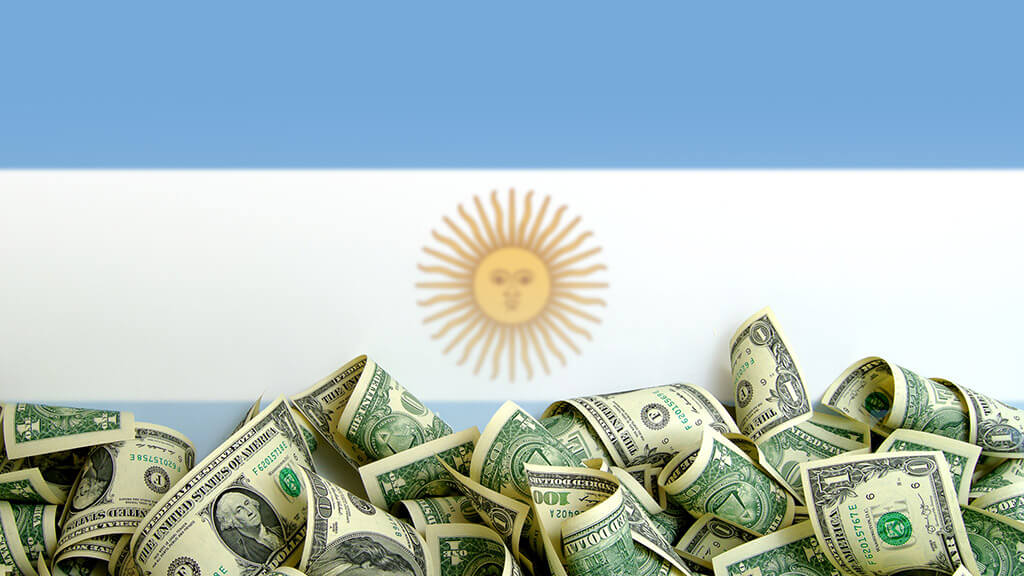THE biggest loan ever from the International Monetary Fund (IMF) – $57.1bn – will be made to Argentina over a three-year period in a bid to ease the country’s financial crisis.
An initial loan of $15bn has already been transferred, with strict repayment conditions: Argentina must commit to a zero deficit for 2019. Since its independence in 1816, Argentina has defaulted eight times on its sovereign debt.

Some critics have blamed the IMF for the very policies that pushed Argentina into the financial crisis of 2001; the international lending institution has admitted to errors of judgement that may have been contributing factors. It agreed that it had overestimated financial growth and the effectiveness of economic reforms, continuing to make loans which led to an unsustainable level of national debt.
The new rescue bid comes on the heels of a nationwide strike in protest at President Mauricio Macri’s austerity measures. Macri, a former engineer, is the country’s first democratically elected non-radical leader since 1916. Macri began his presidency with economic difficulties inherited from previous administrations, with the country suffering the highest fiscal pressure in its history.
Drought-induced soybean and corn crop failures caused the Argentine economy to shrink further – by close to four percent in the second quarter of this year. The national statistics agency Indec predicts that the country’s GDP will contract a further 2.4 percent before year’s end.
Macri intends to balance next year’s budget – and even come up with a modest surplus – via new taxes directed at the agricultural sector. Exporters of primary products must now pay four pesos per export dollar earned on agricultural produce, and three pesos on other commodities. Next year, the export tax is expected to raise an additional $13.4bn in revenue as the farming sector rebounds.
Macri said the economic emergency left him no other choice, and promised to scrap the export tax as soon as the situation normalised. Argentina is the world’s largest exporter of soymeal and the third-largest producer of soybeans.
One of Macri’s first economic policies was the removal of currency controls, allowing Argentines to freely buy and sell foreign currencies. Argentina has had a floating exchange rate since then. By drastically lowering the subsidies on electrical power and natural gas, the government cut its expenditure, but fuelled inflation. In another attempt at slashing the deficit, the administration reduced the number of ministries from 18 to just 10, with five departments downgraded to state entities and others merged to reduce staffing levels.
Markets bemoaned a sluggish government response in curbing spending and introducing meaningful reforms. Buenos Aires made an urgent call for help to the IMF, which took markets by surprise by cobbling together a $50bn rescue package in record time. The Argentine economy minister, Nicolás Dujovne, said this week that the IMF had increased that loan package by $7.1bn.
The terms of the deal state that the Central Bank of Argentina would only intervene to stabilise the currency market in extremis: if the peso goes below 44 to the US dollar. The beleaguered peso has lost exactly half its value since January, and the exchange rate stands at 39 to the dollar.
The president of the Central Bank, Nicolás Caputo, resigned this week. It is not known if his decision to quit was linked to the rescue bid for the peso.




























